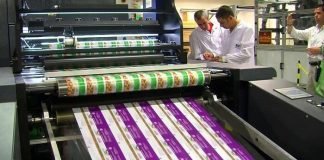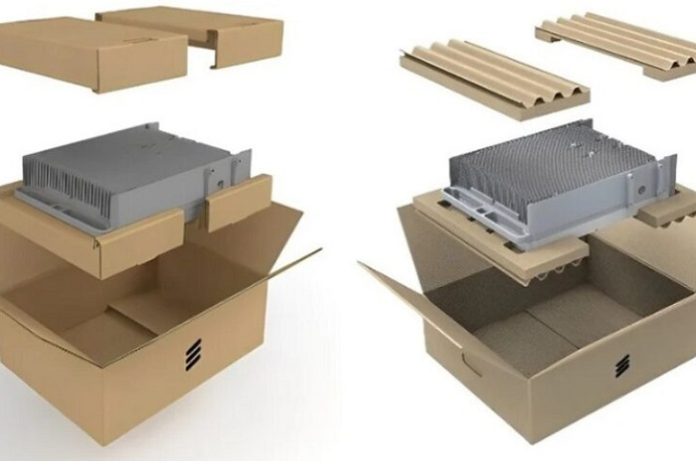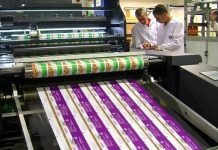Ericsson, in partnership with Deutsche Telekom and Swisscom, has developed a sustainable packaging solution for shipping its remote radio products.
The packaging materials, designed to reduce the environmental impact and plastic content, are fully recyclable and made from wood fiber materials.
The new inserts have reduced the total plastic content of the packaging from 20 percent to less than one percent, and an anti-abrasion coating eliminates the need for plastic protection.
Collaborating with suppliers Nefab and DS Smith, Ericsson’s solution is said to address the challenges of designing plastic-free packaging for hefty electronic products, which typically weigh between 24-36kg.
The revamped designs uphold the crucial structural robustness necessary for safeguarding products during transit.
Apart from eradicating plastics and ensuring full recyclability, the new packaging approach potentially balances or even betters the CO2e impact relative to prevailing solutions, said the company.
Ericsson’s new green packaging solution features a 99% fiber-based composition. Besides, the reinvented packaging, constituted by 100% corrugated inserts, also results in a size reduction of 15 to 20% compared to traditional plastic alternatives, said the company.
The company said that successful trials have been held through its COSMOTE subsidiary in Greece in collaboration with Swisscom and Deutsche Telekom.
Following this, Ericsson anticipates a broader roll-out of the sustainable packaging solution to an expanded clientele and a broader range of hardware products shortly.
The Swedish company aims to achieve Net Zero across its entire operations by 2040 and the new sustainable packaging solution is part of the efforts.
Ericsson sustainability head Mats Pellbäck Scharp said: “Packaging is part of our supply chain target of halving emissions by 2030, and removing plastics contributes to our climate and other environmental ambitions.
“The Ericsson design team has shown that it is possible to remove plastics from packaging for complex and heavy telecom gear while maintaining essential product protection.”
Melanie Kubin-Hardewig, Head of Corporate Responsibility at Deutsche Telekom added: “Deutsche Telekom has set ambitious circularity goals for 2030.
‘We focus on the entire lifecycle of our products and everything we buy from our technology suppliers. We have already taken out all single-use plastics in the packing of our own ‘T’-branded devices.
‘The collaboration with our technology suppliers on innovative ways of sustainable packaging is, therefore, an essential next step.”
Overall, Ericsson’s initiative showcases its commitment to sustainability, circularity, and reducing its environmental footprint in packaging and product distribution.
























